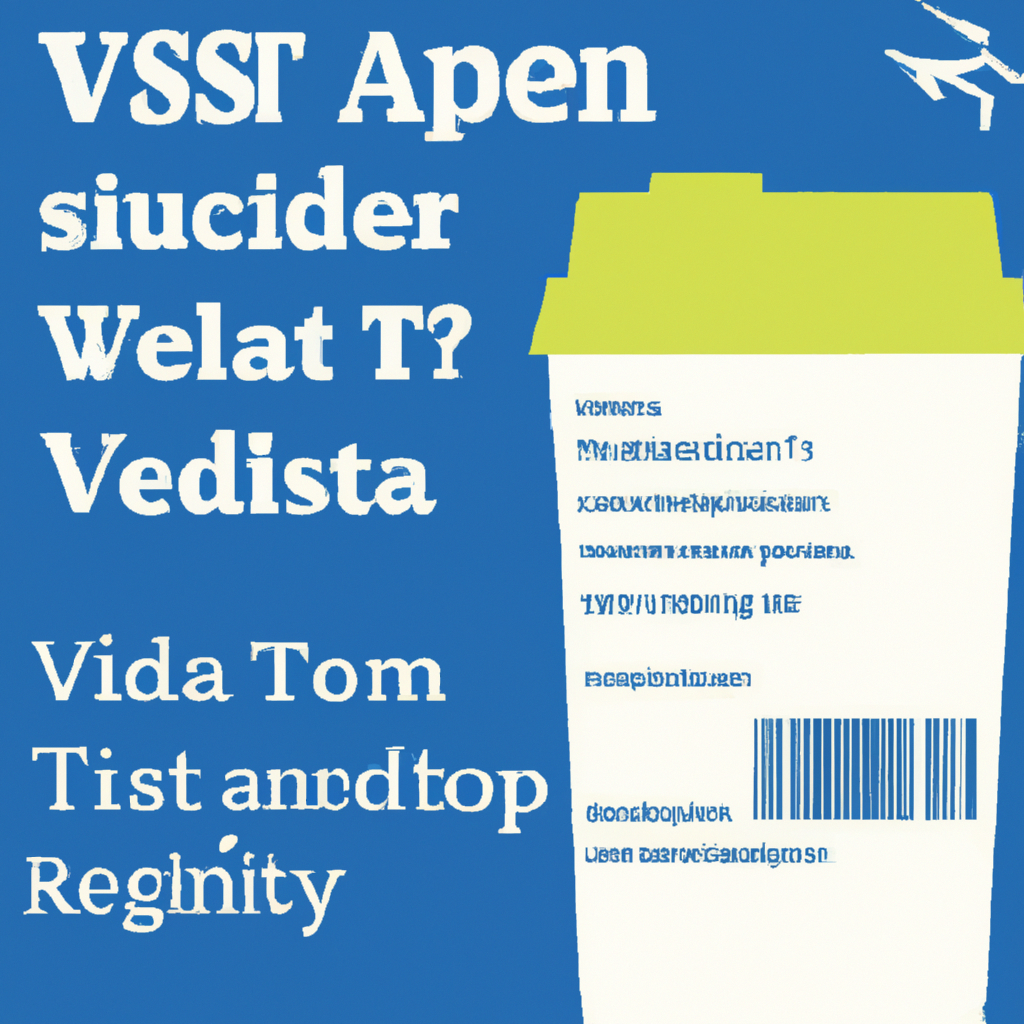Are you dreaming of working in the United Kingdom? If so, you may be wondering how to go about applying for a UK work visa or permit. In this article, we will guide you through the process, providing you with all the essential information and steps you need to take to make your dream a reality. Whether you’re searching for a job in the UK or have already secured a job offer, we’ve got you covered. So, let’s get started on your journey to working in the UK!
How to Apply for a UK Work Visa or Permit
If you are considering working in the United Kingdom, you will need to apply for a work visa or permit. The type of visa or permit you need will depend on the nature of your work and your eligibility. This article will guide you through the process of applying for a UK work visa or permit in a friendly and comprehensive manner.
1. Determine the type of work visa or permit you need
Before you begin your application, it is important to determine the specific type of work visa or permit that is applicable to your situation. The UK offers a range of visas and permits for different employment categories. Here are some of the most common ones:
1.1. Tier 2 (General) visa
The Tier 2 (General) visa is designed for skilled workers who have a job offer in the UK. It is suitable for individuals who have been offered a skilled job with a UK employer who holds a valid Tier 2 sponsorship license.
1.2. Tier 2 (Intra-company Transfer) visa
If you currently work for a multinational company and you are being transferred to the UK branch of that company, the Tier 2 (Intra-company Transfer) visa may be the right choice for you. This visa allows you to work for a UK employer that is linked to your overseas employer.
1.3. Tier 5 (Temporary Worker) visa
The Tier 5 (Temporary Worker) visa is for individuals looking to work in the UK on a temporary basis. This category includes various subcategories, such as charity workers, creative and sporting professionals, and religious workers.
1.4. Tier 1 (Entrepreneur) visa
Entrepreneurs who wish to set up or take over a business in the UK may be eligible for a Tier 1 (Entrepreneur) visa. This visa category requires a minimum investment and the ability to demonstrate a viable business plan.
1.5. Tier 1 (Investor) visa
The Tier 1 (Investor) visa is designed for investors who can make a substantial financial investment in the UK. This visa allows individuals to work or study in the UK and eventually obtain permanent residence.
1.6. Tier 1 (Exceptional Talent) visa
If you are an individual with exceptional talent or promise in the fields of science, medicine, digital technology, arts, or humanities, the Tier 1 (Exceptional Talent) visa may be the right choice for you. This visa category is specifically designed to attract highly skilled individuals to the UK.
1.7. Tier 4 (Student) visa with work placement
If you are a student and wish to gain work experience related to your course of study, you may be eligible for a Tier 4 (Student) visa with work placement. This visa allows you to work part-time during term-time and full-time during holidays or work placements.
1.8. Ancestry visa
If you have a grandparent who was born in the UK, you may be eligible for an Ancestry visa. This visa category allows individuals to work and live in the UK for a period of five years, with the option to apply for settlement thereafter.
1.9. Start-up visa
Individuals who have an innovative business idea and wish to establish a business in the UK may be eligible for a Start-up visa. This visa category is designed for entrepreneurs with a viable and scalable business plan.
1.10. Innovator visa
The Innovator visa is suitable for experienced entrepreneurs looking to establish a business in the UK. This category requires endorsement from an approved endorsing body and presents a pathway to settlement in the UK.
2. Check if you qualify for the chosen visa category
Once you have determined the type of visa or permit that suits your circumstances, it is essential to check if you meet the eligibility requirements. Each visa category has its own set of criteria that must be met. Here is a summary of the eligibility requirements for some popular visa categories:
2.1. Eligibility requirements for a Tier 2 (General) visa
To qualify for a Tier 2 (General) visa, you must have a valid job offer from a UK employer who holds a Tier 2 sponsorship license. You must also meet the English language requirement, have enough funds to support yourself in the UK, and score enough points under the points-based system.
2.2. Eligibility requirements for a Tier 2 (Intra-company Transfer) visa
To be eligible for a Tier 2 (Intra-company Transfer) visa, you must have a job offer from a UK employer who holds a Tier 2 sponsorship license. You will need to score enough points under the points-based system and provide evidence of your previous employment with the overseas employer.
2.3. Eligibility requirements for a Tier 5 (Temporary Worker) visa
The eligibility criteria for a Tier 5 (Temporary Worker) visa vary depending on the specific subcategory. However, generally, you will need a certificate of sponsorship from a UK employer, meet the English language requirement, provide proof of funds, and score enough points under the points-based system.
2.4. Eligibility requirements for a Tier 1 (Entrepreneur) visa
To qualify for a Tier 1 (Entrepreneur) visa, you must have access to at least £50,000 in investment funds and meet the English language requirement. You will also need to provide a detailed business plan and pass the points-based assessment.
2.5. Eligibility requirements for a Tier 1 (Investor) visa
To be eligible for a Tier 1 (Investor) visa, you must have at least £2 million in investment funds that can be invested in the UK. You will also need to meet the English language requirement and demonstrate the source of your funds.
2.6. Eligibility requirements for a Tier 1 (Exceptional Talent) visa
To qualify for a Tier 1 (Exceptional Talent) visa, you must obtain an endorsement from a designated competent body in your field of expertise. You will also need to meet the English language requirement, have sufficient funds to support yourself, and score enough points under the points-based system.
2.7. Eligibility requirements for a Tier 4 (Student) visa with work placement
To be eligible for a Tier 4 (Student) visa with work placement, you must have an offer of a place on a course with a licensed Tier 4 sponsor. You will also need to meet the English language requirement, provide evidence of sufficient funds, and score enough points under the points-based system.
2.8. Eligibility requirements for an Ancestry visa
To qualify for an Ancestry visa, you must be a Commonwealth citizen and have a grandparent who was born in the UK. You will need to provide supporting documents to prove your ancestry and your intention to work and live in the UK.
2.9. Eligibility requirements for a Start-up visa
To be eligible for a Start-up visa, you must have an endorsement from an approved endorsing body. Your business idea must be innovative, viable, and scalable. You will also need to meet the English language requirement and provide proof of funds.
2.10. Eligibility requirements for an Innovator visa
To qualify for an Innovator visa, you must have an endorsement from an approved endorsing body. Your business idea must be innovative, viable, and scalable. You will also need to meet the English language requirement, provide proof of funds, and score enough points under the points-based system.

3. Gather the required documents
Once you have determined your eligibility, the next step is to gather all the necessary documents for your visa or permit application. While the specific document requirements may vary depending on the visa category, here are some common documents that are often required:
3.1. Common documents required for most work visas
- Valid passport or travel document
- Documents proving your immigration status if you are already in the UK
- Evidence of your job offer or sponsorship
- Proof of your qualifications and professional experience
- English language test results
- Evidence of sufficient funds to support yourself in the UK
- Tuberculosis test results (if applicable)
3.2. Additional documents for specific visa categories
In addition to the common documents, each visa category may require specific additional documents. For example, the Tier 1 (Entrepreneur) visa may require a detailed business plan, while the Tier 5 (Temporary Worker) visa may require a certificate of sponsorship from your UK employer. It is important to carefully review the document requirements for your chosen visa category and gather all the necessary documents.
4. Find a certified sponsor
Before submitting your visa application, you will need to find a certified sponsor if your chosen visa category requires one. A certified sponsor is an organization that has a valid Tier 2 sponsorship license and is able to issue you a certificate of sponsorship. The specific requirements for a certified sponsor may vary depending on the visa category. For example, Tier 2 (General) visa applicants require a job offer from a licensed sponsor. It is important to find a certified sponsor before proceeding with your application.
4.1. Understanding the role of a certified sponsor
A certified sponsor plays a crucial role in the visa application process. They will issue you a certificate of sponsorship, which is a virtual document that contains your personal details, job details, and other relevant information. The certificate of sponsorship is a key requirement for many work visas and permits. It is important to have a clear understanding of the role of a certified sponsor in your specific visa category.
4.2. How to find a certified sponsor
Finding a certified sponsor can be a challenging task, especially if you are not familiar with the UK job market. The best approach is to explore job opportunities through recruitment agencies, online job portals, or professional networking platforms. These channels often have listings from employers who hold Tier 2 sponsorship licenses. It is also recommended to research companies in your field of expertise and reach out to them directly to inquire about sponsorship opportunities. Networking events and industry conferences can also be valuable in establishing connections with potential sponsors.

5. Complete the online application
Once you have determined your visa category, checked your eligibility, gathered the required documents, and found a certified sponsor (if applicable), it is time to complete the online application. The online application process is carried out through the UK government website and consists of several steps.
5.1. Register for an account on the UK government website
To begin the online application process, you will need to register for an account on the official UK government website. This account will allow you to access and complete the online application form.
5.2. Fill out the online application form
The online application form will require you to provide personal information, details of your employment, and other relevant information. It is important to accurately fill out the form and provide all the necessary information.
5.3. Pay the visa application fee
Once you have completed the online application form, you will be required to pay the visa application fee. The fee amount will depend on your chosen visa category and the duration of your stay in the UK. It is important to note that the visa application fee is non-refundable, even if your application is unsuccessful.
5.4. Book an appointment at a visa application center
After paying the application fee, you will need to book an appointment at a visa application center in your country of residence. During the appointment, you will be required to submit your biometric information, such as fingerprints and a digital photograph.
6. Attend biometrics appointment
The biometrics appointment is a mandatory step in the visa application process. During the appointment, your fingerprints and a digital photograph will be taken. This information will be used to produce your biometric residence permit, which is the document that proves your permission to live and work in the UK.

7. Submit supporting documents
Following your biometrics appointment, you will need to submit your supporting documents. These documents should be organized according to the specified requirements for your chosen visa category. It is important to double-check that you have included all the necessary documents to avoid any delays or complications in the processing of your application.
8. Wait for a decision
Once you have submitted your application and supporting documents, you will need to wait for a decision to be made. The processing times may vary depending on your chosen visa category and other factors. It is advisable to regularly check the UK government website for updates on processing times. During this waiting period, it is essential to avoid making any travel arrangements or commitments, as these may be affected by the processing times.

9. Collect your visa or permit
If your application is successful, you will receive a decision letter and your visa or permit will be affixed to your passport or issued separately as a biometric residence permit. The decision letter will provide instructions on how to collect your visa or permit. It is important to carefully follow these instructions and collect your visa or permit within the specified time frame.
10. Start working in the UK
Once you have collected your visa or permit, you can start working in the UK according to the conditions specified in your visa or permit. It is important to abide by the immigration rules and regulations and ensure that your employment remains compliant with the terms of your visa or permit.
Applying for a UK work visa or permit can be a complex process, but with proper preparation and attention to detail, it is achievable. By following this comprehensive guide, you can navigate through the application process with confidence and increase your chances of a successful outcome. Good luck with your UK work visa or permit application, and enjoy your new working adventure in the United Kingdom!

